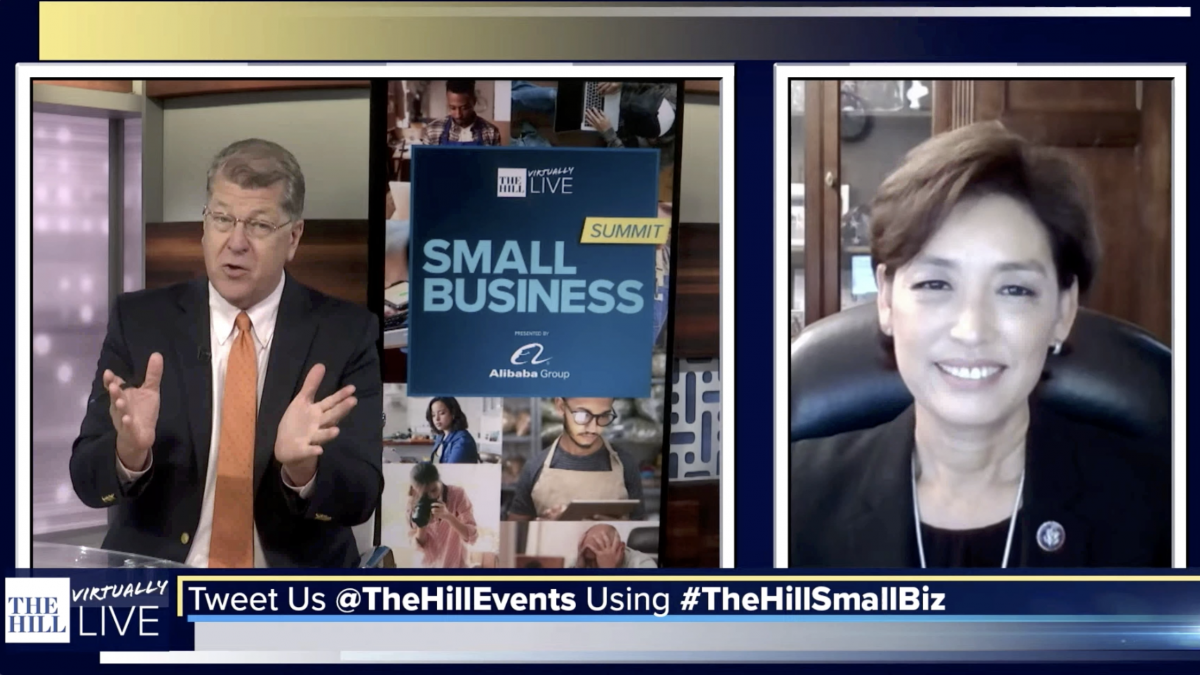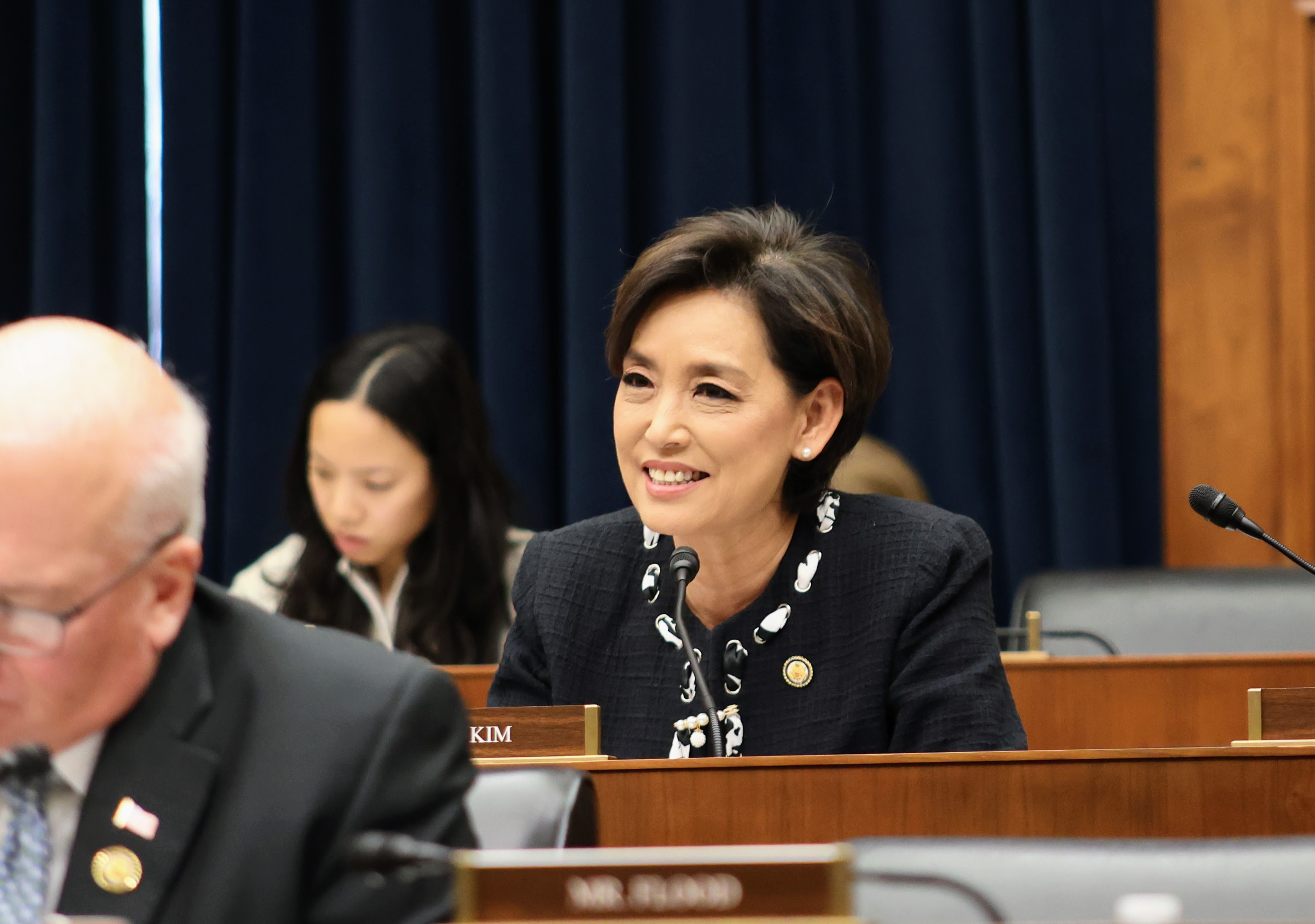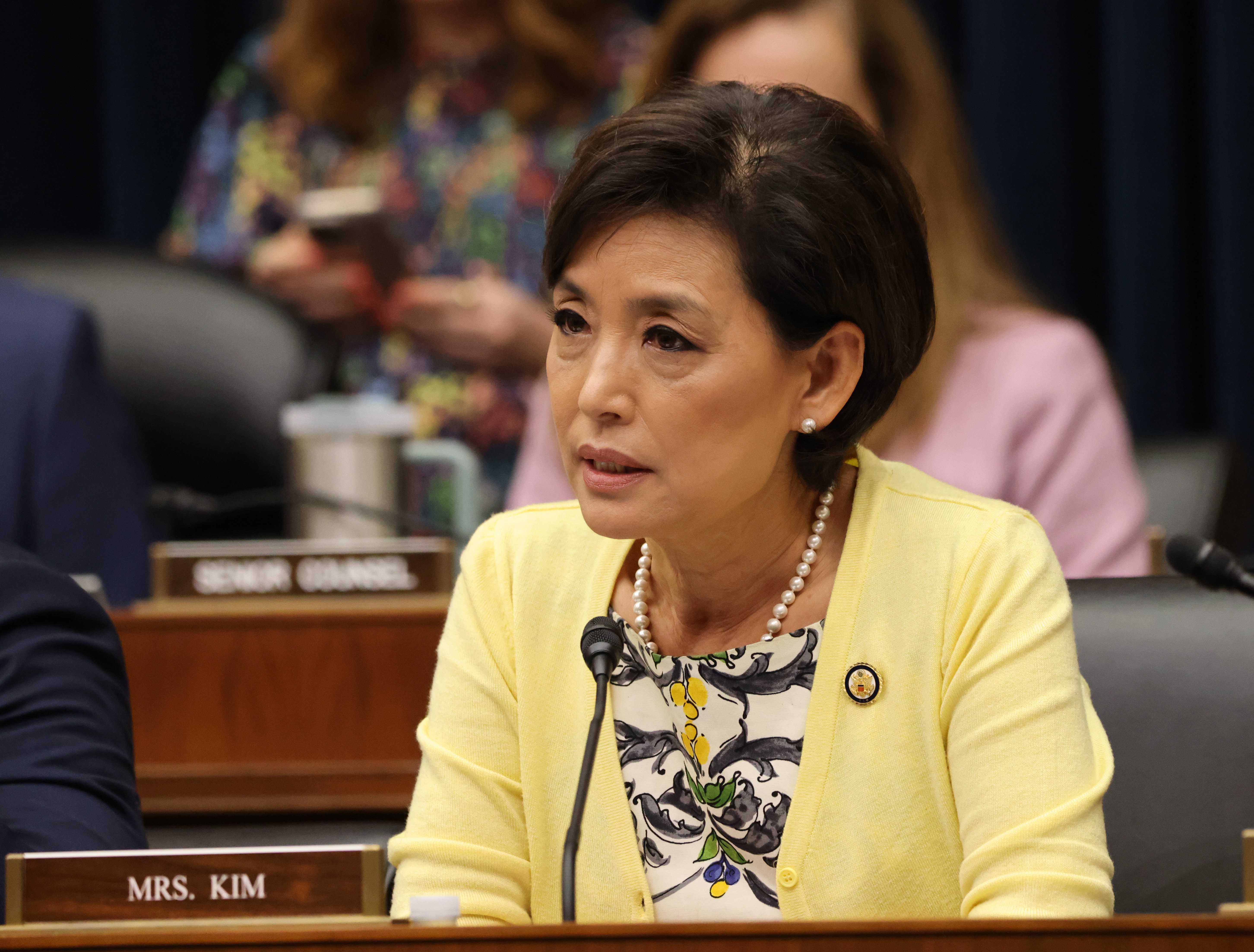Washington, DC – U.S. Representative Young Kim (CA-39), who serves as Ranking Member of the Small Business Subcommittee on Innovation, Entrepreneurship and Workforce Development, joined The Hill’s Small Business Summit yesterday to talk with Editor-at-Large Steve Clemons about her work in Congress to support small businesses.
Watch the full conversation HERE and read highlights below.
WATCH: On Being a Small Business Owner in Congress:
“Before I came to Congress and before I worked with my former boss, Congressman Ed Royce, I was a small business owner in the garment industry, fashion industry. I had my own showroom at California Mart, dealing with buyers and going into manufacturing of the ladies’ wear clothing, so I do understand what the small businesses face each and every day. Coming to Congress, I found, I don’t know the exact number of my colleagues who have been former business owners, but there are quite a few, especially since I serve on the Small Business Committee. Anytime we have conversation in the hearings, or for example a couple weeks ago it was National Small Business Week and we’re holding round table discussions inviting our small businesses from our districts, we are always talking about my background in small business, I ran a business here and there. I can tell you I see there are quite a large number of colleagues of mine that understand what the small businesses go through. I think that’s the reason why they put us on the Small Business Committee, because we understand that. Especially now as we are dealing with COVID-19 and trying to help small businesses survive, keep their doors open, we’re constantly working about those areas and federal programs. What can we do to make their lives easier?”
WATCH: Congress’ role in helping small businesses during COVID-19:
“Let me first tell you the small businesses in my home state of California during the COVID-19 pandemic were hit the hardest. I can tell you 40,000 small businesses in our state closing and half of those – that is 20,000 – closed permanently. Hearing those heartbreaking stories of businesses closing their doors, I think we all came together in a very efficient way. We saw in 2020 Congress passing the first CARES Act to provide the immediate support they need, and we also saw unprecedented amount of federal loan programs through the SBA. I heard over and over how small businesses have come to me and told me they were the lifeline of these businesses to keep their doors open, put their employees on their payroll, and especially that Paycheck Protection Program allowed it to happen. I think what our job in Congress is to continue to provide policies that will allow small businesses to continue to be creative, continue to be innovative. During the COVID-19 pandemic I saw especially in my district which is very diverse we have a lot of ethnic communities and Asian restaurants trying to keep their doors open. I saw utilizing parking lots, bringing tents and continuing to serve their customers that way, but California had more strict rules than other areas, so I think we saw a lot of them really struggling. I think what we’re trying to do is obviously the programs that we helped with PPP and so forth they were very helpful but because many of these programs were created so quickly during the pandemic and the SBA saw an unprecedented number of loan applicants there were difficulties in processing those. A year later when our committee is doing oversight hearing we found some issues with how we were dealing with it and we’re trying to work through those.”
WATCH: On the importance of trade with Pacific Rim for California small businesses:
“My 39th District is part of Southern California, which we call the gateway to the Pacific Rim. Our constituents and state of California businesses rely heavily on our trades with our trading partners in Asia. Right now, during the COVID-19 pandemic, there are containers after containers, I mean there are just a lot at the ports. The goods are not moving. The trade is greatly affected, so this hurts our businesses. It affects the supply chain. All of that is affecting and so I’m very pro-trade with our Asian allies, especially in the Pacific Rim. I think we need to continue to provide our support there.”
WATCH: On cybersecurity of small businesses:
“Many small businesses continue to adapt to keep their doors open, and doing that includes our reliance on doing online businesses. This pandemic made it very clear that our reliance on technologies will only continue into the future, so we need to embrace the new technologies in today’s changing economy. I think by doing it we’re also concerned about the protecting the cybersecurity of our small businesses, and that is crucial. I think we need to evaluate lessons learned during COVID-19 and create programs that are successful in the long term. I joined my [Small Business Innovation, Entrepreneurship and Workforce Development] Democratic Chair Jason Crow in introducing SBA Cyber Awareness Act. This is a bipartisan bill, and that is an initiative that would ensure Small Business Administration to prioritize and improve their cybersecurity capabilities and report to Congress on their efforts. This is a bill that was passed out of the committee in July, so I hope the House passes that soon.”
WATCH: On Democrats’ $3.5 trillion reconciliation:
“The federal government already has $28 trillion in federal debt, and we are currently looking at passing another $3.5 trillion budget reconciliation through that reconciliation process, and we’re also talking about another $1.2 trillion infrastructure bill. My concern when we were passing or voting on the continuing resolution just this week, and that was yesterday actually, it was brought to the floor. It included a provision to increase or raise the debt limit. That is unlikely to pass in the Senate. My concern was this is going to pass and we’re going to add increased federal debt. We’re already spending $300 billion, if not more, just to pay the interest payment on the federal that we already have. The continuing resolution will allow our federal government to continue its operation, but the Democrats are trying to include the raising the debt limit or debt ceiling. It’s not the way to do it. I was really concerned about that. If we allow Speaker Pelosi and Democrats to move forward with this $3.5 trillion reconciliation package, our country could spend at least $5.4 trillion, and that’s more spending than total amount that we spent in World War II. We just cannot afford to pass a blank check that allows Democrats to saddle future American generations with debt by raising the debt limit, and that’s through the December 2022. The Democrats are just playing partisan game over here because it’s clear that isn’t going to pass the Senate. I support a clean continuing resolution to keep the government running, but that wasn’t the case. Especially I’m concerned about when we are at a 13-year inflation high and our state, across the nation, workers, businesses, and families they are bearing the brunt of high costs on top of already high housing price, so that’s what I’m fighting and those are my concerns.”




